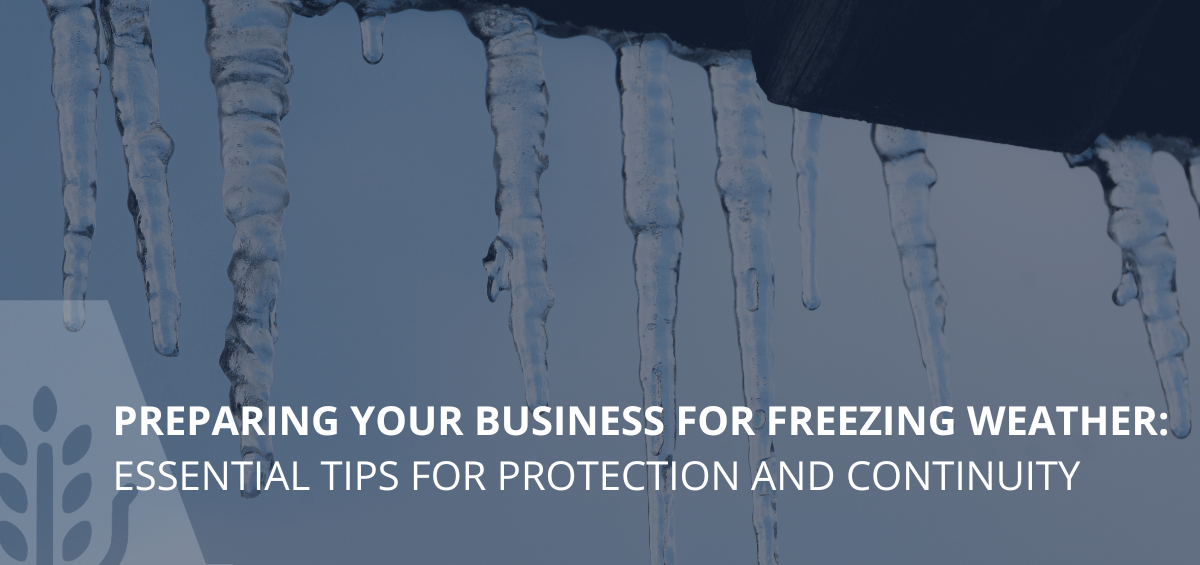Winter weather can bring beautiful snowflakes, but it can also bring freezing temperatures that can disrupt businesses. Whether you’re a small business owner or manage a larger operation, it’s crucial to be prepared to protect your assets, employees, and operations from the challenges of extreme cold. Here are some essential tips to help your business weather the freeze.
1. Protect Your Plumbing
Burst pipes are a common risk during freezing weather. To avoid costly water damage:
- Insulate pipes: Wrap exposed pipes in insulation or heat tape, especially in areas prone to freezing.
- Drip faucets: Keep a slow drip running to prevent pressure buildup in frozen pipes.
- Seal cracks: Check for drafts near pipes and seal gaps to keep cold air out.
2. Maintain Your HVAC System
A reliable heating system is critical for keeping your business operational during freezes:
- Schedule a professional HVAC inspection before the cold weather hits.
- Replace filters and ensure your system can handle extended use.
- Have backup heating options ready in case of a breakdown.
3. Prepare Your Exterior
The outside of your business is just as important to protect as the inside:
- Clear gutters: Remove debris to prevent ice dams and water damage.
- Inspect the roof: Check for loose shingles or weak spots that could fail under snow or ice.
- Salt walkways and parking lots: Prevent slips and falls by keeping areas well-treated.
4. Review Your Emergency Plans
Ensure your business can respond quickly to unexpected disruptions:
- Stock emergency supplies: Have flashlights, first aid kits, bottled water, and blankets on hand.
- Create a communication plan: Ensure employees know how to receive updates about closures or adjusted schedules.
- Check backup power sources: Test generators and ensure you have fuel on-site.
5. Secure Your Inventory
Freezing temperatures can damage inventory, equipment, and other materials:
- Relocate temperature-sensitive items to climate-controlled areas.
- Insulate storage spaces to prevent freezing.
- Use temperature monitoring devices to track conditions in storage areas.
6. Communicate With Employees
Keeping your team informed and prepared is essential:
- Share safety tips and reminders about dressing warmly.
- Establish a flexible remote work policy if road conditions become dangerous.
- Provide employees with resources for preparing their homes, such as weatherproofing tips.
7. Check Your Insurance Coverage
Freezing weather can lead to unexpected damages:
- Review your business insurance policy to confirm coverage for weather-related incidents.
- Document your property and equipment with photos in case you need to file a claim.
- Keep your insurance provider’s contact information easily accessible.
8. Stay Informed
Weather conditions can change quickly, so stay ahead of the forecast:
- Monitor local weather alerts and advisories.
- Sign up for text or email notifications from emergency management services.
- Plan ahead for extended freezes by scheduling maintenance and supply checks.
By taking these precautions, your business will be better prepared to handle freezing weather with minimal disruption. A little preparation goes a long way in protecting your operations, employees, and customers.












